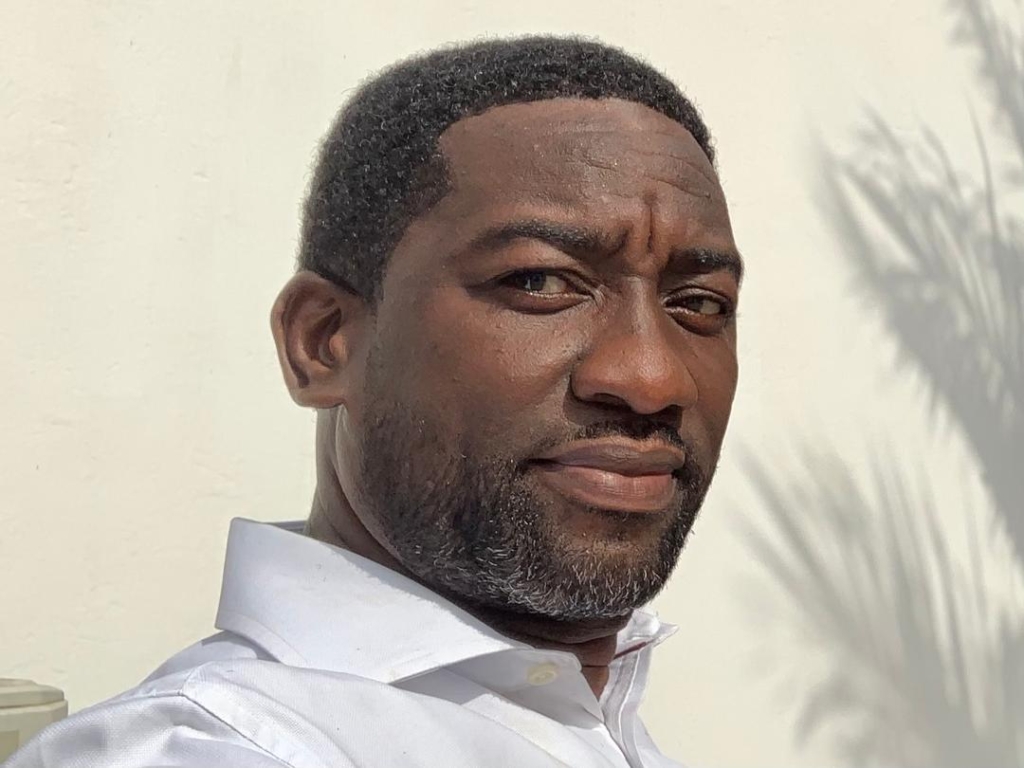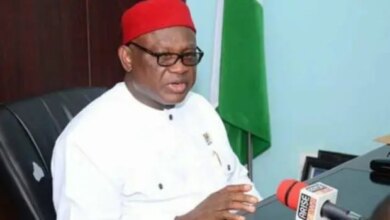Why the GoldBod aggregation model must not fail Ghana: A fact-based perspective


Ghana stands at a historic inflection point in its economic and resource management trajectory. With the establishment of the Ghana Gold Board (GoldBod) and the implementation of the Gold Aggregation Model, the nation has embarked on a transformative effort to formalise its artisanal and small-scale mining (ASM) sector, capture greater value from its mineral wealth, and restore transparency to one of its most critical export industries.
Ghana’s gold sector stands at a historic crossroads. For decades, while the nation has ranked among the world’s top gold producers — exporting an estimated 4.8 million ounces in 2024, up from 4.0 million ounces in 2023 — it has struggled to retain the full economic value of this natural wealth. The Ghana Gold Board (GoldBod), established under the GoldBod Act 1140 (2025), represents a bold national intervention aimed at correcting this imbalance through a transparent gold aggregation model that formalises and integrates the artisanal and small-scale mining (ASM) subsector into Ghana’s formal economy.
This model must not fail — not simply because it promises reform, but because it carries the potential to redefine Ghana’s entire mineral value chain, strengthen macroeconomic stability, and deliver lasting benefits to mining communities and the broader national economy.
This initiative represents far more than a regulatory adjustment—it is a structural economic reform designed to re-anchor Ghana’s gold economy in the national interest. The stakes are immense: the model’s success or failure will determine whether Ghana can sustainably leverage its position as Africa’s top gold producer for inclusive growth or relapse into a cycle of lost revenue, smuggling, and unregulated exploitation.
The facts already demonstrate that GoldBod’s aggregation model is working, but also that it must not fail, for the economic, social, and fiscal stability of Ghana depends on it.
1. Ghana’s Gold Economy Is Too Strategic to Be Left Fragmented
Gold remains Ghana’s largest export commodity, contributing over 45% of total export earnings and serving as the primary source of foreign exchange. According to the Bank of Ghana’s 2025 quarterly data, gold exports brought in over US$11 billion in 2024, with artisanal and small-scale mining accounting for nearly 40% of that value.
Prior to the introduction of GoldBod, Ghana’s ASM gold trade was riddled with fragmentation:
- Up to 60% of ASM gold was smuggled out of the country annually, costing Ghana between US$2–3 billion in lost revenue.
- Small-scale miners sold gold at 10–20% below global market prices, often to illegal intermediaries.
- The state lacked a credible mechanism for traceability, risking international sanctions on conflict minerals.
GoldBod’s centralised aggregation model directly addresses these failures by serving as a single, transparent buyer and exporter for all ASM gold. This ensures every gram of gold mined is recorded, assayed, taxed, and exported through legal channels. The results are already tangible.
2. Evidence of Success: The Data Speaks
Since its inception, GoldBod has rapidly transformed Ghana’s gold ecosystem. Verified export and production data demonstrate measurable progress:
- In 2024, ASM gold production rose to 1.9 million ounces, a 70% increase from 1.1 million ounces in 2023.
- ASM’s contribution to total national output grew from 28% to 39%, according to Ecofin Agency and the Ghana Chamber of Mines.
- Between February and May 2025, GoldBod exported 41.5 tonnes of ASM gold, valued at US$4 billion (GHS 40 billion).
- In May 2025 alone, Ghana exported 11 tonnes of gold worth US$1.172 billion, setting an all-time national record.
- The Bank of Ghana’s gold reserves increased from 30.53 tonnes in January 2025 to 37.06 tonnes in September 2025, a 21.3% growth—directly supported by the aggregation model.
These numbers confirm that GoldBod has not only improved revenue generation but also restored Ghana’s control over its own gold flows. Failure to consolidate these gains would reverse this progress and re-open the doors to illicit trade and economic leakage.
3. The Economic Stakes: Stability, Currency, and National Reserves
Ghana’s economy relies heavily on gold inflows for foreign exchange stability. In a period of volatile global commodity prices, every tonne of gold exported through official channels strengthens the cedi, boosts foreign reserves, and reduces the need for external borrowing.
- The US$4 billion generated from ASM gold exports in the first four months of 2025 alone contributed to stabilising the exchange rate, supporting the cedi against depreciation pressures.
- The increase in gold reserves has enhanced Ghana’s sovereign creditworthiness and reduced reliance on short-term foreign loans.
- Gold-backed reserves now form part of the Bank of Ghana’s Domestic Gold Purchase Programme, which underpins monetary policy stability.
If the aggregation model falters, Ghana risks losing not only billions in export value but also the macroeconomic stability that depends on these inflows. The country would once again face the dual challenge of smuggling-driven revenue loss and currency depreciation—a scenario Ghana cannot afford amid fiscal tightening and debt recovery efforts.
4. Social and Developmental Impact: Empowering Ghanaian Miners
GoldBod’s aggregation model is not only an economic policy—it is also a social transformation tool. Ghana’s ASM sector employs an estimated 1 million people directly and supports over 4.5 million livelihoods indirectly. Before formalisation, most miners operated informally, without access to finance, fair markets, or safety standards.
The aggregation framework has begun to:
- Provide fair and transparent pricing linked to international gold spot markets.
- Offer digital payments that bypass exploitative middlemen.
- Create opportunities for capacity building through continuous training, environmental reclamation, and community development.
By integrating miners and licensed gold buyers into the formal economy, GoldBod ensures that wealth generated from gold extraction circulates within local communities rather than being siphoned off through smuggling networks. If this model fails, the sector risks falling back into the chaos of informality—fueling poverty, environmental degradation, lost state revenue and possible upheavals intended to disrupt the stability of Governance in Ghana.
5. National Image and Global Compliance
Ghana’s gold must not only be profitable but also credible in the eyes of international markets. With rising global standards on ethical sourcing and traceability, countries exporting unverified gold risk blacklisting from major buyers and refiners. GoldBod’s centralised system ensures Ghana’s gold is fully traceable, certified, and compliant with OECD and LBMA guidelines for responsible sourcing.
Failure of this system would not only undermine Ghana’s export reputation but could also trigger sanctions or restrictions from key trading partners. Maintaining the credibility of Ghanaian gold is thus a matter of national pride and economic necessity.
6. A Blueprint for Resource Governance
GoldBod represents more than a gold management agency—it is a template for resource governance in Ghana and across Africa. Its model of aggregation, formalisation, and transparency mirrors successful systems like COCOBOD’s cocoa framework and Botswana’s diamond governance partnership with De Beers.
If successful, it could inspire similar aggregation structures for other critical sectors—manganese, lithium, and bauxite—ensuring that the wealth from Ghana’s natural resources is equitably distributed. If it fails, it could deepen public cynicism toward state-led reforms and discourage foreign investment in formalised mining systems.
7. The Cost of Failure: A National Risk Assessment
Should the GoldBod model fail, Ghana would face the following realities:
- Annual revenue losses exceeding US$3 billion due to renewed smuggling.
- Collapse of traceability and compliance, risking international trade barriers.
- Reduced forex inflows, leading to currency depreciation and inflation.
- Loss of employment security for hundreds of thousands of miners.
- Deterioration of Ghana’s global reputation as a transparent mining destination
- Distabilize the Governance of Ghana.
In short, failure would not simply be institutional—it would be political, economic, social, and reputational.
8. The Way Forward: Ensuring GoldBod’s Enduring Success
To secure the sustainability of the aggregation model, the following strategic measures are imperative:
- Institutional Independence – Shield GoldBod from political interference and ensure it operates under strict corporate governance.
- Fair Market Pricing – Maintain dynamic pricing pegged to international rates to sustain miners’ confidence.
- Investment in Refining Capacity – Expand domestic refining to retain 10–15% of value currently lost through raw exports.
- Digital Transparency – Implement blockchain-based tracking to monitor every transaction from pit to port.
- Inclusive Partnerships – Deepen collaboration with the Chamber of Licensed Gold Buyers -CLGB, ASM associations, and local banks for financing and compliance support.
- Establishing Aggregation centres within the gold mining and buying communities.
Conclusion
The GoldBod aggregation model must not fail Ghana because it represents a national turning point—an opportunity to permanently capture and retain the true value of the country’s most important resource. The evidence shows that when managed effectively, this model delivers measurable results: higher gold output, stronger reserves, stable currency performance, and improved livelihoods for Ghanaian miners.
This is more than an institutional reform—it is an economic revolution. If Ghana sustains the GoldBod model, it will not only secure billions in future revenue but also redefine how African nations govern their mineral wealth. Failure, on the other hand, would reverse hard-won gains and leave Ghana once again at the mercy of illicit traders and global market volatility.
For the sake of economic sovereignty, fiscal stability, and social equity, Ghana cannot afford to let the GoldBod aggregation model fail. It must succeed — and in doing so, it must redefine the legacy of gold for generations to come.
DISCLAIMER: The Views, Comments, Opinions, Contributions and Statements made by Readers and Contributors on this platform do not necessarily represent the views or policy of Multimedia Group Limited.
DISCLAIMER: The Views, Comments, Opinions, Contributions and Statements made by Readers and Contributors on this platform do not necessarily represent the views or policy of Multimedia Group Limited.
Source link





